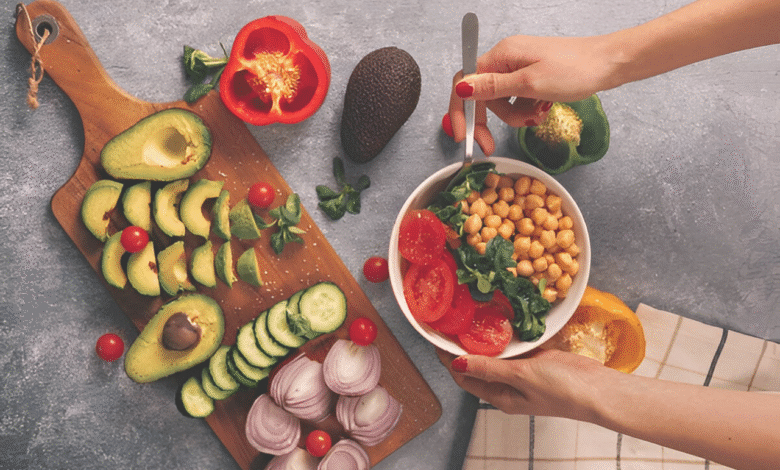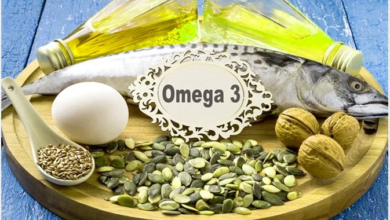Best Anti-Inflammatory Foods to Add to Your Diet Today
Anti-inflammatory foods that fight chronic disease. Discover 10 powerful ingredients to reduce inflammation and boost health naturally. Start healing.

Chronic inflammation is a silent threat linked to numerous health problems, from heart disease to arthritis. Fortunately, adding anti-inflammatory foods to your diet can help combat this issue naturally. These nutrient-packed foods work by reducing oxidative stress, balancing immune responses, and promoting overall wellness. Unlike temporary fixes, they provide long-term benefits that support a healthier, more vibrant life.
The right dietary choices can make a significant difference in managing inflammation. By incorporating powerful anti-inflammatory foods like fatty fish, berries, and leafy greens, you can protect your body from cellular damage while enjoying delicious, wholesome meals. This guide explores the top inflammation-fighting foods and how they work to keep your body in optimal condition.
Best Anti-Inflammatory Foods to Add to Your Diet Today
Fatty Fish
Fatty fish like salmon, mackerel, and sardines are among the best anti-inflammatory foods due to their high omega-3 fatty acid content. These healthy fats, particularly EPA and DHA, help reduce inflammation by decreasing the production of inflammatory molecules like cytokines. Studies show that regular consumption of fatty fish can lower the risk of chronic diseases such as heart disease and rheumatoid arthritis. Aim for at least two servings per week to maximize benefits.
Berries
Berries, including blueberries, strawberries, and raspberries, are packed with antioxidants like anthocyanins, which combat oxidative stress and inflammation. Their high fiber content also supports gut health, further reducing inflammatory responses. Research indicates that berries can improve brain function and protect against age-related diseases. Adding a handful of berries to your breakfast or smoothies is an easy way to harness their benefits.
Leafy Greens
Leafy greens such as spinach, kale, and Swiss chard are loaded with vitamins A, C, and K, as well as polyphenols that fight inflammation. These vegetables also contain high levels of magnesium, which plays a role in reducing inflammatory markers. Incorporating leafy greens into salads, soups, or smoothies can enhance your body’s natural defense against inflammation while supporting digestion and immune function.
Nuts and Seeds
Almonds, walnuts, chia seeds, and flaxseeds are excellent sources of healthy fats, fiber, and protein. Walnuts, in particular, are rich in omega-3s, while chia and flaxseeds provide lignans, which have strong anti-inflammatory properties. Eating a small handful of nuts or seeds daily can help regulate blood sugar and reduce inflammation-related conditions like metabolic syndrome.
Olive Oil
Extra virgin olive oil is a key component of the Mediterranean diet, known for its anti-inflammatory benefits. It contains oleocanthal, a compound that works similarly to ibuprofen in reducing inflammation. Using olive oil as a primary cooking fat or salad dressing can help lower the risk of chronic diseases while promoting heart health.
Turmeric
Turmeric contains curcumin, a potent Anti-Inflammatory Foods that blocks inflammatory pathways in the body. Studies suggest it may be as effective as some anti-inflammatory drugs, without the side effects. Pairing turmeric with Black pepper enhances absorption, making golden milk or turmeric-spiced dishes a great addition to an anti-inflammatory diet.
Tomatoes
Tomatoes are high in lycopene, an antioxidant that reduces inflammation, particularly in the lungs and heart. Cooking tomatoes with healthy fats like olive oil increases lycopene absorption. Including tomatoes in sauces, soups, or salads can help protect against inflammatory conditions like prostate cancer.
Dark Chocolate
Dark chocolate (with at least 70% cocoa) is rich in flavonoids that reduce inflammation and improve heart health. Moderation is key, but a small square daily can satisfy cravings while providing anti-inflammatory benefits.
Green Tea
Green tea is packed with catechins, antioxidants that inhibit inflammation and protect cells from damage. Regular consumption has been linked to lower risks of cancer and improved brain function. Swapping sugary drinks for green tea can significantly reduce inflammation and support metabolism.
Avocados
Powerful Anti-Inflammatory Properties
Avocados stand out as one of nature’s most effective anti-inflammatory foods, thanks to their unique nutritional profile. Packed with monounsaturated fats, particularly oleic acid (the same beneficial fat found in olive oil), avocados help reduce inflammatory markers in the body like C-reactive protein (CRP). They also contain potent antioxidants including vitamin E, lutein, and beta-carotene which combat oxidative stress at the cellular level. Remarkably, studies show regular avocado consumption can lower interleukin-6 (IL-6), a key inflammatory cytokine linked to chronic diseases.
Heart-Healthy Fats and Fiber
The creamy texture of avocados comes from their high content of heart-healthy fats that actually fight inflammation rather than promote it. A single avocado provides about 20% of your daily fiber needs, including both soluble and insoluble types that support gut health – a crucial factor in systemic inflammation. These healthy fats help improve cholesterol profiles by raising HDL (good cholesterol) while lowering LDL (bad cholesterol) and triglycerides. The combination of fiber and fats also helps stabilize blood sugar levels.
Enhanced Nutrient Absorption
One of avocado’s most unique benefits is its ability to boost absorption of fat-soluble nutrients from other foods. The monounsaturated fats act as carriers for important anti-inflammatory compounds like carotenoids from vegetables. Research demonstrates that adding avocado to a salad increases absorption of alpha-carotene by 8.3 times, beta-carotene by 13.6 times, and lutein by 4.3 times compared to salads without avocado. This makes avocados the perfect addition to any vegetable-rich meal.
Skin and Joint Protection
Avocados contain an impressive array of compounds that specifically target skin inflammation and joint discomfort. They’re rich in polyhydroxylated fatty alcohols (PFAs) that have been shown to reduce inflammation in skin cells and may help with conditions like psoriasis. The combination of vitamin E, vitamin C, and antioxidants in avocados helps protect collagen in joints while reducing oxidative damage that leads to stiffness and discomfort. Many arthritis sufferers report reduced symptoms when regularly consuming avocados.
Versatile and Delicious Applications
Beyond their health benefits, avocados offer incredible culinary versatility that makes them easy to incorporate into any diet. Their creamy texture allows them to replace Anti-Inflammatory Foods ingredients like mayonnaise or sour cream in recipes. They can be blended into smoothies for extra creaminess without altering flavor, mashed into dips, sliced onto toast, or simply enjoyed with a sprinkle of sea salt. Unlike many superfoods that require special preparation, avocados are delicious raw and ready to eat when ripe.
Read More: 7-Day Clean Eating Plan for Beginners with Recipes
Conclusion
Incorporating anti-inflammatory foods into your daily meals is one of the most effective ways to combat chronic inflammation and boost overall health. From omega-3-rich fatty fish to antioxidant-packed berries and turmeric, these natural powerhouses work synergistically to reduce oxidative stress, support immune function, and lower disease risk. Making these foods a regular part of your diet doesn’t just fight inflammation it also enhances energy, improves digestion, and promotes long-term wellness.
An Anti-Inflammatory Foods doesn’t require drastic changes small, consistent swaps can make a big difference. Whether you start by adding leafy greens to your lunch or sipping green tea instead of sugary drinks, each choice brings you closer to better health. By prioritizing these nutrient-dense foods, you’re not just eating well you’re investing in a healthier, more vibrant future.
FAQs
What are the most powerful anti-inflammatory foods?
Fatty fish (like salmon), berries, leafy greens, turmeric, and nuts are among the top Anti-Inflammatory Foods due to their high antioxidant and omega-3 content.
How quickly will I notice results from an Anti-Inflammatory Foods?
While some people report reduced bloating and joint pain within 2-3 weeks, significant inflammation reduction typically takes 4-8 weeks of consistent dietary changes.
Can anti-inflammatory foods replace medications?
While they can significantly reduce inflammation, always consult your doctor before making changes to prescribed treatments for chronic conditions.
Are there any anti-inflammatory foods I should avoid at night?
Spicy foods or those high in fiber (like cruciferous vegetables) may disrupt sleep – opt for cherries or walnuts which contain natural melatonin.
Do I need to buy organic versions of these foods?
Prioritize organic for produce on the “Dirty Dozen” list (like strawberries and spinach), but conventional options still provide anti-inflammatory benefits if organic isn’t accessible.










